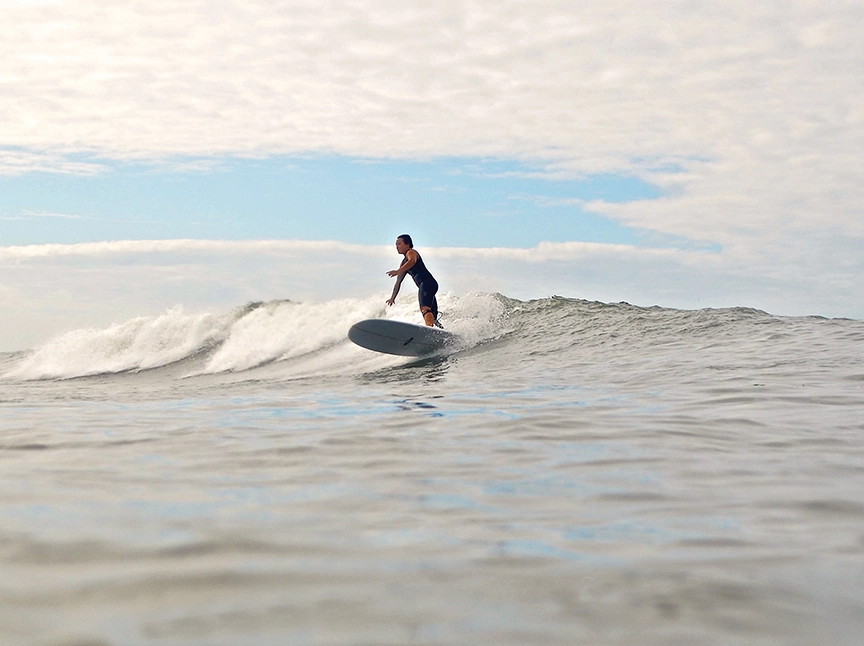By Abbey Smith
Many people have goals for their lives, but when facing amputation those plans can change in an instant. A dream of playing college basketball or dancing in a ballet company might seem impossible after losing a limb.
After amputation, some people reinvent themselves or find new life paths. Some amputees have found themselves inspired to become a nurse, therapist, or rehabilitation counselor to help others in similar situations.
As a teen, Mark Barr spent most of his free time playing baseball and soccer. At age 14, however, he lost his right leg above the knee after being diagnosed with osteosarcoma. He wasn’t sure if he’d ever be able to play the sports he loved again.

He tried returning to baseball, but found it too difficult. Playing soccer wasn’t possible either. Wanting to remain active, he rejoined his former club swim team and rediscovered his love for the water.
“Not being able to return to baseball and soccer was hard, but I was happy to have swimming,” says Barr, who first started swimming at age 4. “There is something magical about taking your leg off and jumping in the pool.”
Although he had once been an accomplished swimmer—ranking eighth in the country in the 200m individual medley at age 10—he now struggled to swim with one leg. Not one to give up easily, he gradually rebuilt his strength and adapted to balancing in the water.
“I realized I only had two choices,” he says. “I could have a positive attitude, or I could have a negative attitude and feel sorry for myself. Luckily, I had great support from family and friends that made adopting a positive attitude the obvious choice for me.”
Following his passion and positivity, Barr went on to swim for California Polytechnic State University’s Division 1 men’s swim team. He was also a member of the U.S. Paralympic swim team between 2003 and 2008, and earned a silver medal in the 100m butterfly at the 2006 World Championships. After retiring from competitive swimming in 2008, he began competing in triathlons and soon became a four-time national champion in the Paralympic PT2 category and a bronze medalist at the 2013 World Championships.
Just as his amputation helped steer his path as a swimmer, it also led him to his current profession as a trauma nurse in the surgical intensive care unit (ICU) at Ben Taub Hospital in Houston.
“I was inspired to become a nurse based on my experiences with the nurses who cared for me during my cancer treatments,” he says. “Ten months of chemotherapy meant I got to know the healthcare staff very well, and I appreciate everything they did for me.”
For Barr, 29, working in the ICU is a rewarding experience because he’s able to help patients who need critical care. He also works with patients who have lost limbs and enjoys being able to relate to them on a personal level while providing an example that they, too, can live happy, healthy lives after amputation.
“As a trauma nurse, I’ve learned the power of teamwork,” says Barr, RN, BSN, CCRN. “No nurse can single-handedly manage the load of a level-one trauma patient. It takes the entire healthcare team—nurses, aides, doctors, and pharmacists—to come together to effectively care for a critically ill patient.”
In addition to his plans to earn a graduate degree in either nurse anesthesia or critical care, Barr is training to compete in triathlon at the Rio 2016 Paralympic Games. He’s also a member of the Challenged Athletes Foundation’s (CAF’s) elite paratriathlon team and a volunteer peer visitor through Hanger Clinic.
Make It Possible
As the 2016 U.S. Adaptive Surfing Champion in the standing division, Danielle “Dani” Burt has accomplished quite a bit since losing her right leg.
After graduating from high school in New Jersey, Burt decided to travel instead of attending art school. It wasn’t long after a move to San Diego, however, that she was involved in a motorcycle crash in July 2004. Her right leg was amputated above the knee the following month, while she remained in a drug-induced coma.

“I had to start all over again with the assistance of physical, occupational, and speech therapy,” says Burt, who had to relearn how to sit up, walk, and even speak. “I was very lost during that time and had no idea what my future would look like.”
In the beginning, she found it difficult to ask others for help—especially because she had been so independent before the accident. However, she began to develop strong bonds with those close to her, something she says she’ll never take for granted. For Burt, her experience has been about more than just herself. It’s been about everyone who has crossed her path, lent a hand, listened to her, and given her a shoulder to cry on.
“Instead of thinking that fear and depression are weaknesses, consider them strengths,” Burt says. “Use them as motivation to push hard and make what you think is impossible, possible. Everyone needs time and space to grieve, but don’t let that take over. Change can be scary, but it makes you grow as a person.”
Burt uses her experiences to help others in her current role as a physical therapist at Sharp Memorial Hospital in San Diego.
“I work with people who may be experiencing the worst moments of their lives,” says Burt, who received the hospital’s Eagle Spirit Award this year. “They’re putting their trust in me to assist them, and I never take that for granted.”
She’s also making a name for herself in the world of surfing. In fact, she’s the first known female above-knee amputee surfer in the world and has competed in and earned top awards in events across the globe since she first began surfing eight years ago.
“There’s nothing else like surfing,” Burt says. “It clears my head. I don’t think about what I do or don’t have. It allows me to leave everything behind and just focus on the horizon, looking for that next set. Some days it’s mellow with little peelers, while other days the waves are big, dark, and pounding. It’s like life—ever-changing.”
THERE IS SOMETHING MAGICAL ABOUT TAKING YOUR LEG OFF AND JUMPING IN THE POOL.
People told her she wouldn’t be able to continue her athletic pursuits as an amputee, but she pushed through and prepared herself mentally, physically, and emotionally to achieve her goals. There wasn’t a surf prosthesis on the market when she started surfing, so she had to find a way to make it possible. Now, she’s focused on helping other amputees make their dreams reality and has adopted the slogan “Make it possible.”
“I want to be available to anyone looking for advice on getting out there,” says Burt, who also wants to pursue motivational speaking. “It’s just too beautiful not to want to share with others, and I know how impactful it has been in my own healing.”
Never Give Up

As a student at Baylor University, John Mabry was focused on pursuing a career in sports broadcasting when a car accident changed everything and forced him to rethink the future.
In March 2000, Mabry was riding in his friend’s SUV when the rear tire blew, causing the vehicle to roll 12 times and kill his friend. Mabry’s legs were crushed upon impact. He spent four weeks recovering in the hospital and underwent 14 surgeries during the following year. Recurring infections, however, left him to decide between enduring more operations—with no guarantee of success—or having his right leg amputated below the knee. He chose amputation, and six weeks later walked across the stage at his college graduation.
Inspired to help others struggling with hardships, he pursued a master’s degree in rehabilitation counseling from San Diego State University while also working at CAF.
“My amputation led me to opportunities that I never had before,” says Mabry. “I’ve counseled others, acted in movies, and invented a product to help other amputees. If it wasn’t for my amputation, I may have had a normal desk job.”
In 2005, his cousin, an actor, asked Mabry for advice to better understand his role as a character who loses his leg. This led to Mabry being hired as a body double, which then opened the door to more acting jobs—including roles in Superbad, NCIS, Brothers & Sisters, and, most recently, Mercy Street.
Although he seemed to be on track with his life, Mabry still hadn’t come to terms with how the accident had affected his psyche. Driven by fear, he turned to alcohol and substance abuse as a way to cope.
I JUST TRY TO FOCUS ON THE PRESENT AND APPRECIATE EVERY MOMENT.
“I didn’t want to look at the trauma I’d been through,” he says. “I had this drive to show everyone I was good. But over time, I was getting worse and becoming more depressed. I externalized everything that was happening. I blamed the accident for the way I was reacting, but, in reality, I was the one responsible for the choices I was making.”
He spent several years in therapy, learning how to deal with his past experiences as well as his current situation.
“I needed help, and I continue to need help,” he says. “I make a conscious effort to be around people who support me, which helps control stress and anxiety. I’ve also learned not to plan too far ahead. I just try to focus on the present and appreciate every moment.”
Mabry also works for Addiction Campuses, which provides treatment programs for people struggling with drug and alcohol addictions. As part of the business development team, he helps people get the help they need. His wife and children also continue to inspire him and motivate him to stay focused and sober.
“Don’t give up on being the person who God intends you to be,” he says. “Although I’ve hit life-altering barriers and fallen many times, I’ve always gotten back up.”
For more information, visit www.daniburt.com and https://mabryliving.com.



